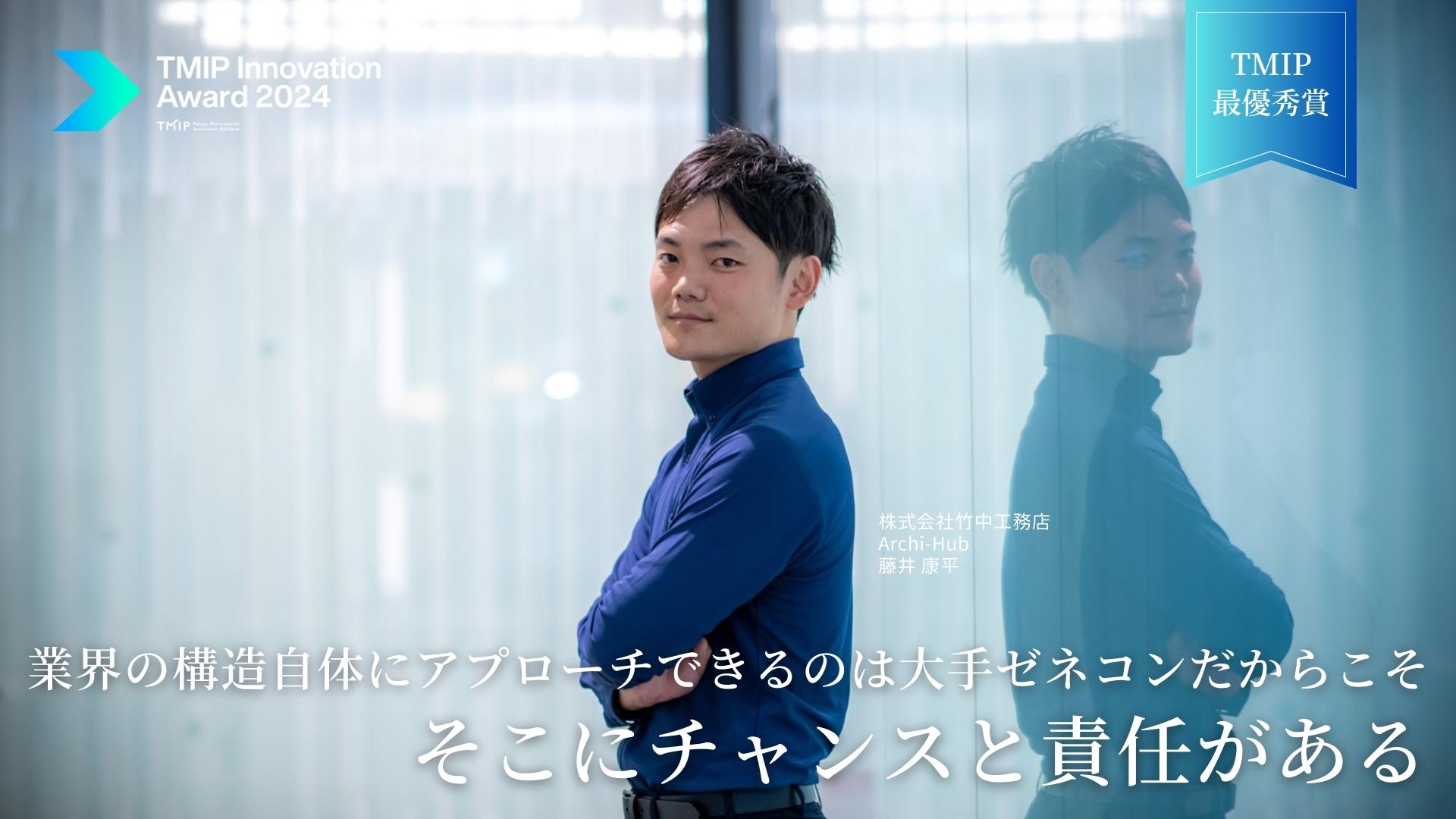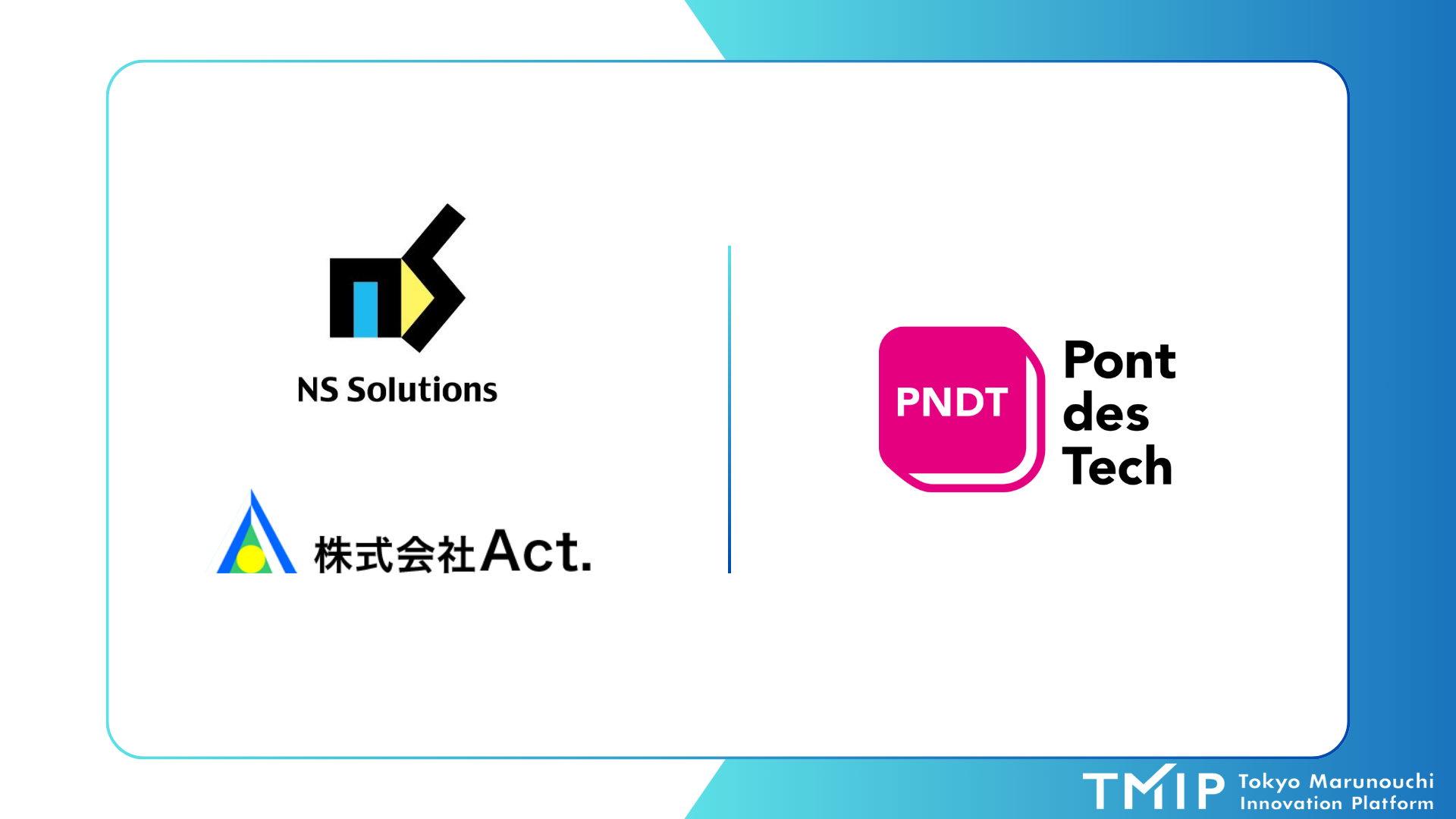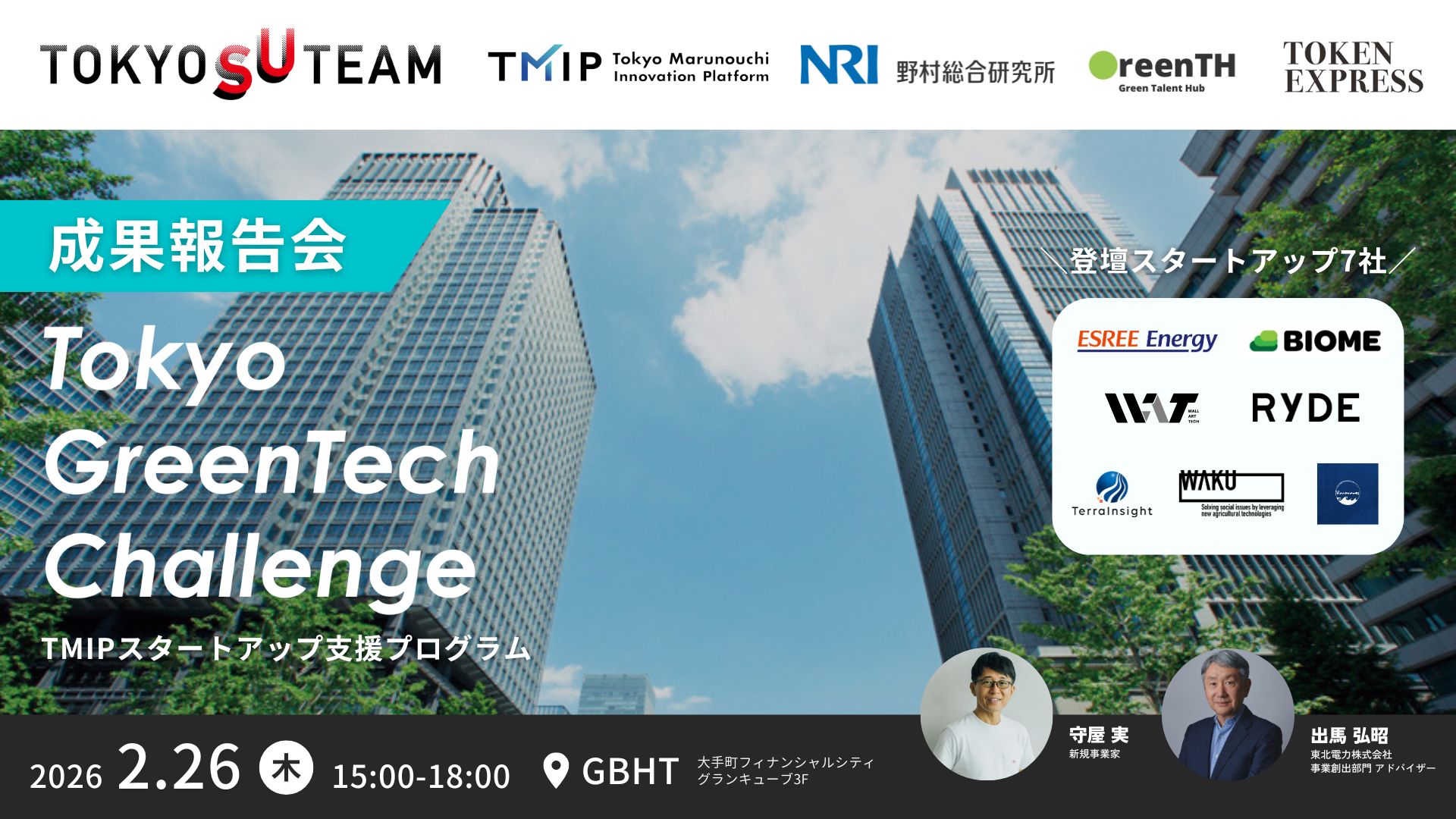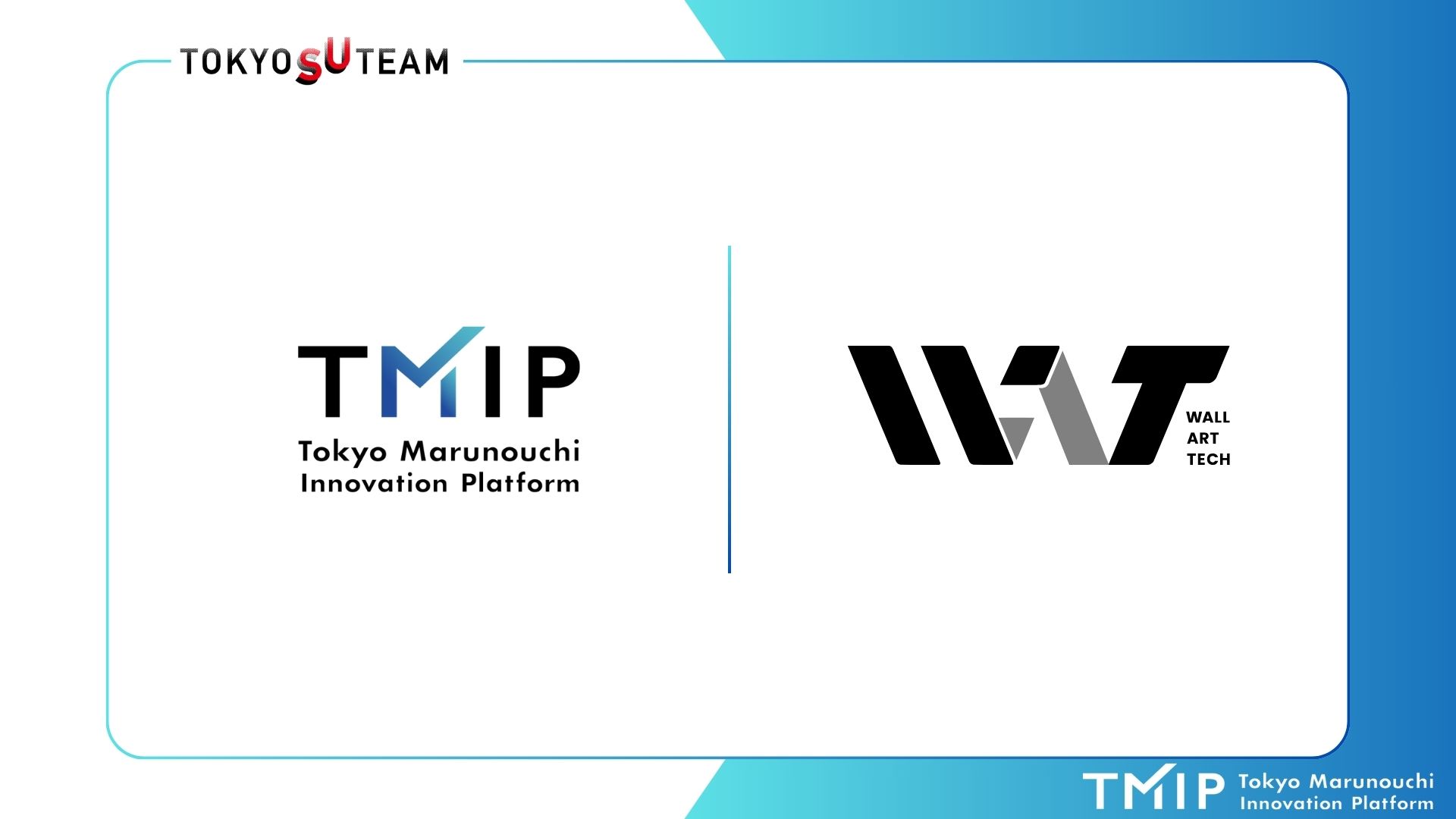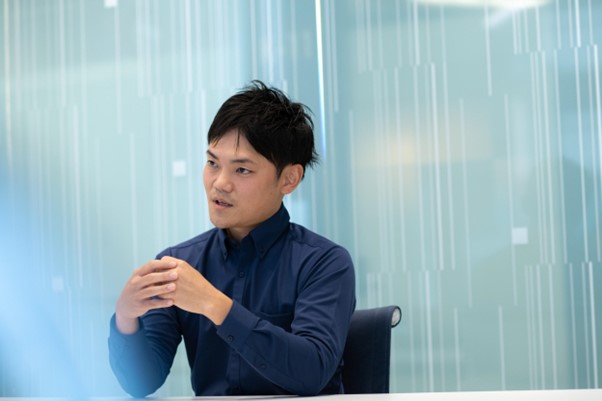
Kohei Fujii
Takenaka Corporation, Technology Devision Head Office
Born in 1987, he is a first-class architect, a first-class construction management engineer, and a father of three children. He was raised in a family that has been in the construction business for generations, and from an early age, the construction site was his playground. 15 years old, he entered a technical college to pursue a career in architecture, and 20 years old, he joined Takenaka Corporation. Since then, he has had a wide range of experience in construction management, order support, construction planning, training, and on-site DX. One year after the launch of the service in 2024, he is currently working on the “Archi-Hub” reuse business with zero business investment and no announcement by the company on the utilization of the service. The service has 110 MAUs, 1,100 monthly PVs, and GMV has exceeded 80 million yen, and is still growing. The company is deepening cooperation with domestic and international building material and equipment manufacturers, recycling companies, and creators.
TMIP (Tokyo Marunouchi Innovation Platform) is an open innovation platform that aims to support the creation of new businesses by large corporations and to create businesses through collaboration between large corporations, startups, industry, government, academia, and the city.
Following last year’s event, the TMIP Innovation Award 2024 was held to recognize “new business creation” originating from large companies, aiming to create a society where large companies openly take on new business challenges.
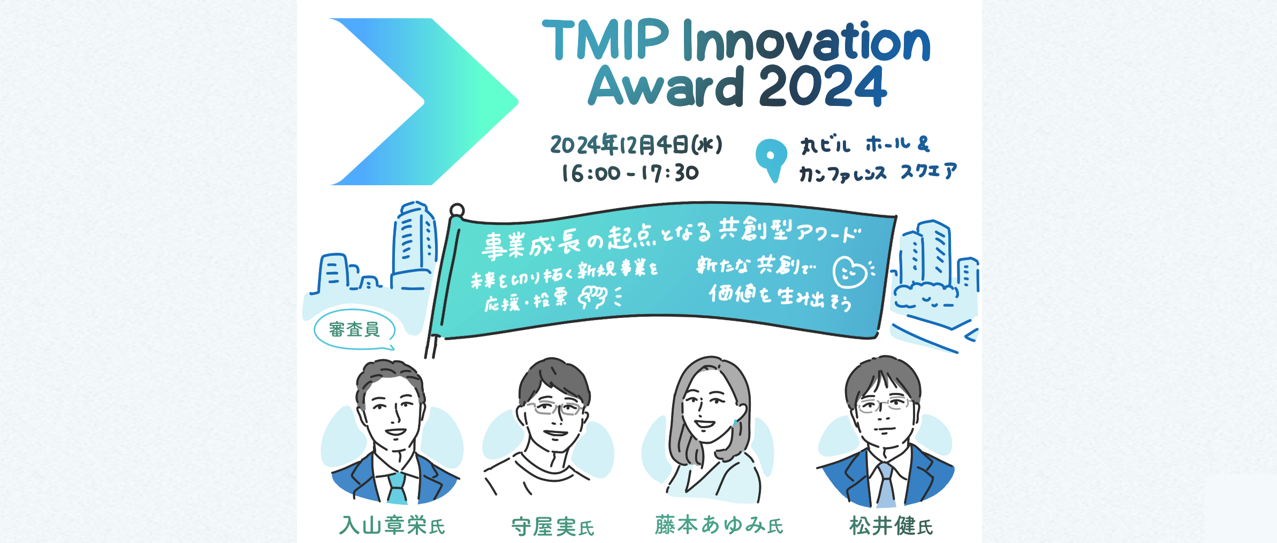
The Award evaluate new businesses launched in the past five years that will lead the next generation of large corporations based on a variety of perspectives, including market size, innovation, and attitude toward solving social issues. The Grand Prize, Excellence Award, Nikkei Business Award, and Audience Award was selected on December 4, 2024, based on pitches by the five finalists.
The Grand Prize winner was “Archi-Hub” , an intermediary platform for the reuse of idle corporate assets, which was launched as an in-house new business by Takenaka Corporation. In this article, we invited Mr. Kohei Fujii, the founder of “Archi-Hub” , to talk in detail about the process of taking on the challenge of building a resource ecosystem, the struggles he has overcome as an intrepreneur in a large corporation, and the future he sees for the construction industry.
Is the trash problem at real estate and construction sites actually a treasure trove?
“Archi-Hub” is an intermediary platform that delivers idle assets held by companies to construction projects nationwide. By connecting sites that have unneeded construction materials and equipment with those that need them, the service reduces new construction costs while curbing resource waste. This is a new in-house business that Takenaka Corporation began operating on a trial basis in 2023 as a service that can also promote carbon neutral measures.
Mr. Fujii, the planner of this business, was born into a family that has been in the construction business for generations, and joined Takenaka Corporation after graduating from a technical college with a degree in architecture. Since then, he has gained a wide range of work experience from upstream to downstream in the construction industry, including site supervision, order receipt and design work, organizational reform, and DX promotion.
With such a thorough understanding of the situation on site and the structure of the industry, Mr. Fujii has identified “reuse” as an issue that needs to be solved.
Mr. Fujii: At office moving and demolition sites, a great deal of resources are thrown away, such as chairs, desks, and other equipment, still usable lighting, disaster prevention equipment that has never been used, and removed building materials. If this were an individual move, it would be more common for people to think about reusing, for example, “Let’s put usable items on flea market apps,” but companies are currently reluctant to reuse such items.
The reason is that the number of companies that will accept such reuse is extremely small in relation to the amount of waste materials. Companies that do discard waste materials are unable to find a suitable recipient, even though they feel it is a waste, and end up recycling or discarding what is still usable.
In order to change this corporate practice of discarding usable items, we thought it would be a good idea to create a system that would encourage companies to make effective use of used items… This was the concept behind the “Archi-Hub” business plan.

Strengths in knowing the field, solid trust and network earned through footwork.
Mr. Fujii’s concept for “Archi-Hub” was originally inspired by an in-house business contest held by Takenaka Corporation, a company with a history of over 400 years, for the second time since its founding. Having worked mainly on construction sites up until then, new business development was new territory for Mr. Fujii. However, after observing a variety of construction sites over a long period of time, Mr. Fujii had a stockpile of ideas in his head, such as, “It would be great if we could do this better,” or “The industry as a whole would be better off if we could change this area”.
Mr. Fujii: I have always found the work in front of me rewarding, but I have always had a desire to take on a challenge that would make a big difference in the situation. If I miss this chance, my past ideas and desire to improve the industry will never see the light of day. I thought that now is the time to win …….
I was busy with my regular work, so for the three months leading up to the contest, I went to a family restaurant near my home after I left work and continued to come up with new business ideas and brush up on them until the restaurant closed every day. I had roughly 30 ideas, but only about five of them made it to the level where I could make a final proposal.
With his enthusiastic proposal for “Archi-Hub”, Mr. Fujii and his colleagues won first place in an in-house business contest out of more than 200 entries. Mr. Fujii thought, “Now I can try my hand at creating a new business”, but what awaited him was the challenge of starting from scratch. He had to create everything by himself, including the review structure, affiliations, budgeting, and so on.
Even if you complain about ……, which does not even provide a starting line, you will not be able to make progress. With the support of the evaluation from the in-house business contest, Mr. Fujii repeatedly conveyed his thoughts to the people concerned and obtained an environment in which he could focus on the commercialization of “Archi-Hub” for the time being.
The difficulties continued after that. Although he regularly reported on the business plan, the situation of “general agreement and disagreement” continued, and progress remained stagnant for about six months. Mr. Fujii then made a bold move, saying, “If I can’t persuade them with a plan, let’s first establish a track record”.
Mr. Fujii: My strength is the on-site experience I have cultivated and the wide range of experience I have gained in the construction process, from the order receipt stage to after-sales service. I used this experience to make direct appointments with project managers and department managers throughout Japan, and asked them if they would be interested in trying out the “Archi-Hub” and giving me their opinions. We gathered those who were interested, created a community, and began brokering the reuse of materials without taking a commission.
Although we were a bit nervous about taking the plunge, we were generally well received by the division managers and field operation managers from the start. The number of community members gradually increased, and now there are more than 500 members, mainly work foremen. The project started with no budget and no announcement from the company, but thanks to the cooperation of many people, we were able to reuse 80 million yen in GMV (gross merchandise value) and approximately 80 tons in total weight in the first year of the trial.
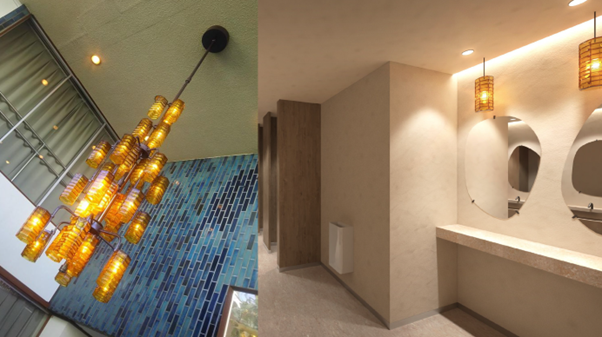
Chandelier that Illuminated Wedding Hall for 40 Years Lights Up Marunouchi Office with New Light
This achievement attracted strong interest from the board of directors, and Mr. Fujii says, “At that time, I felt for the first time that the need for the “Archi-Hub” was recognized. The fact that Mr. Fujii has been able to create a track record, even if a bit aggressively, has paid off, and he is now able to promote his business with the support of many of his members.
External recognition is “a source of internal persuasion” and “a pillar of the mind that will not give up”
Even though it was difficult to gain understanding within the company, Mr. Fujii believed in the potential of “Archi-Hub” and steadily accumulated achievements. How is it that you were able to continue to lead the business to this point without giving up in the middle of the project, even though you were in a difficult situation with no budget and no personnel?
Mr. Fujii: One of the driving forces is the external recognition. At an internal business contest, which was the initial impetus for the project, an external judge highly praised it, saying, “This is a business that makes good sense and can win a Yokozuna Sumo match. On another occasion, a business manager said to me, “If it comes down to it, we will invest in your business”.
I feel that such positive recognition from the outside is also helping us to enhance our presence within the company. I participated in the TMIP Innovation Award 2024 because I wanted to accelerate the growth of “Archi-Hub” by gaining external recognition.
“Archi-Hub” was awarded the Grand Prize in the TMIP Innovation Award 2024.
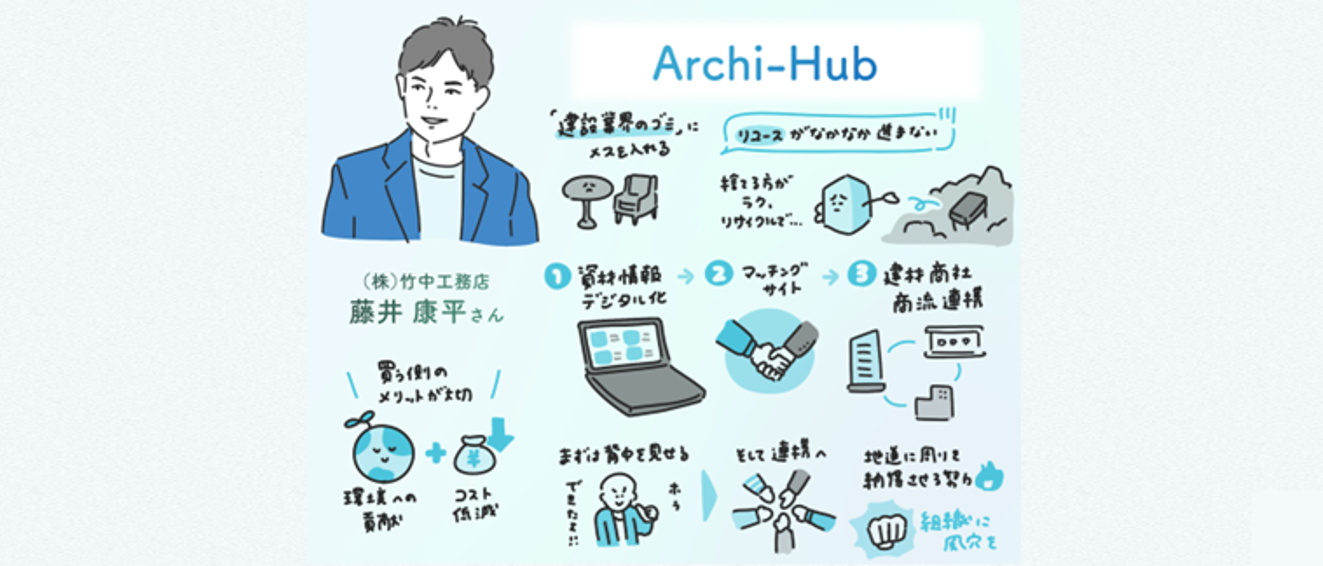
Mr. Akie Iriyama, Professor of Waseda University Business School, who served as a special judge, sent the following message to Mr. Fujii and the Takenaka Corporation staff in attendance.
Mr. Iriyama said, “I would love to see new businesses from large companies with social value grow with the support of those around them.”
In response to Mr. Iriyama’s comments, Mr. Fujii said, “I am very happy to receive the Grand Prize. At the same time, I feel that this is the beginning of a new challenge. By creating a new business practice of reusing building materials and furniture discarded from buildings between construction projects, we will revolutionize the 150-year-old scrap-and-build architectural culture. He expressed his joy at receiving the award and his determination for the future.
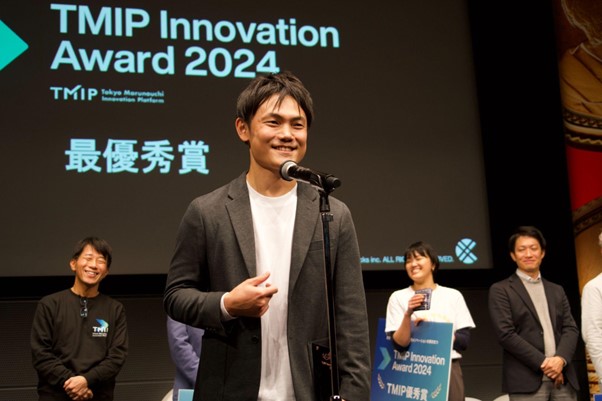
In order to expand the number of items that can be reused, Mr. Fujii is eager to collaborate with other general contractors and manufacturers to develop technologies and products for removing various types of equipment.
Mr. Fujii: Many of the resources present in buildings are not easy to remove. In order to be able to reuse various resources in the future, from structural elements such as columns and beams to large equipment, we need to not only improve technologies that can be used for a long time, but also develop “removal” technologies to make it easier to reuse them.
We will create buildings with future demolition in mind. I believe that only a major general contractor can take on such next-generation challenges.
If all the people involved in “Archi-Hub” work together, the future of the construction industry will surely be brighter. I will continue to do my utmost to achieve this goal.


